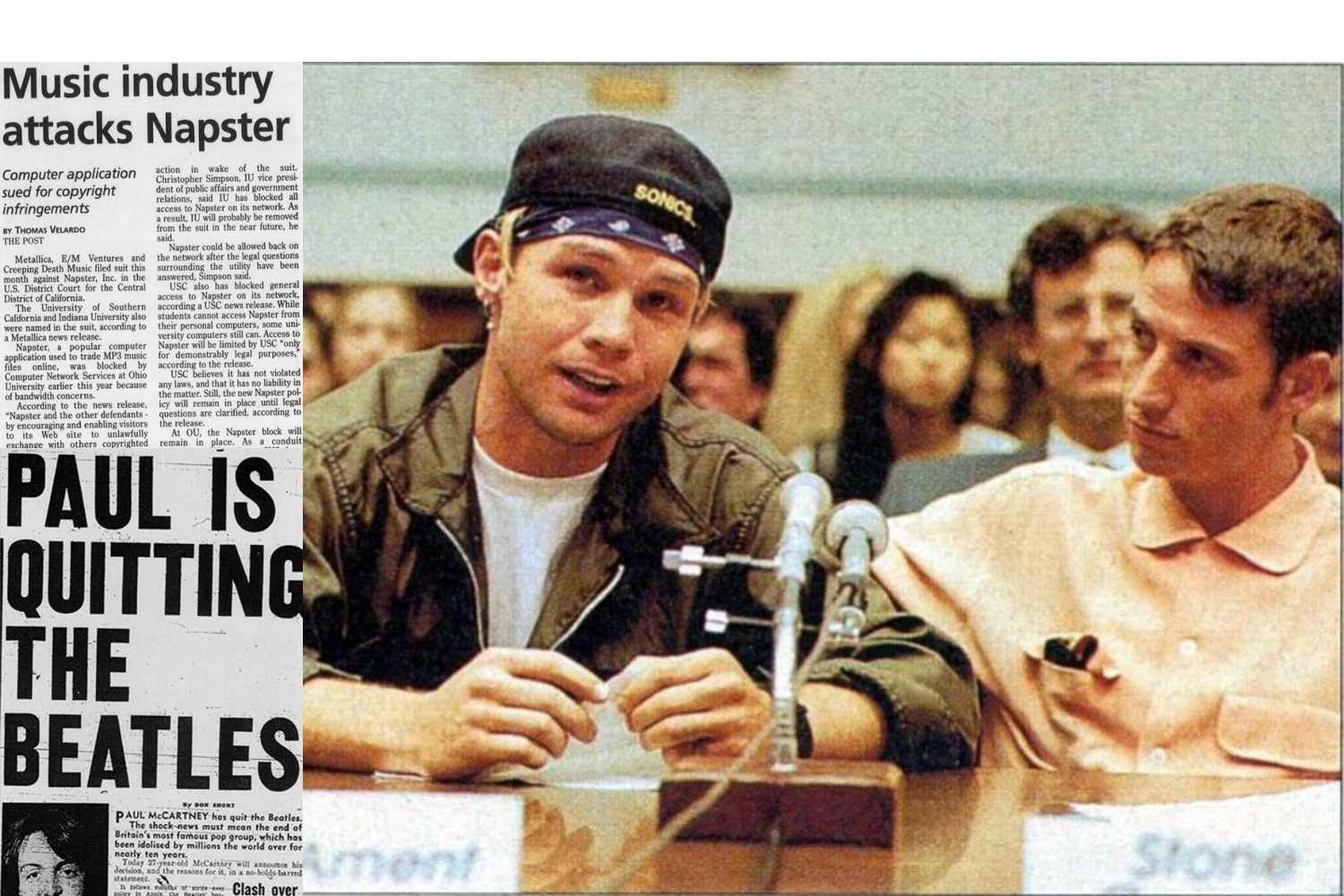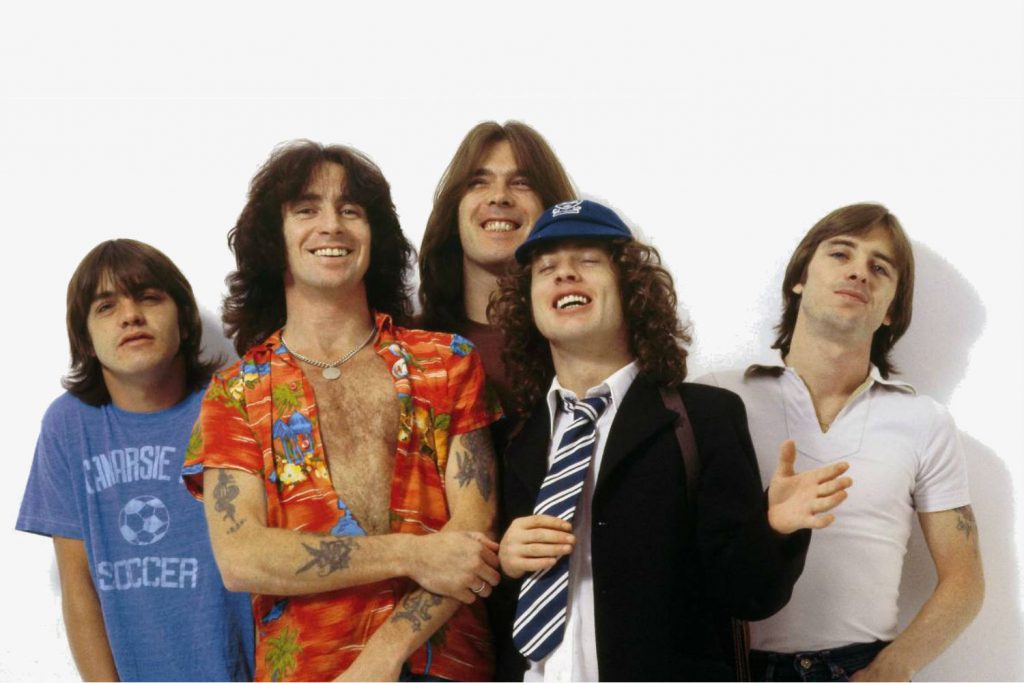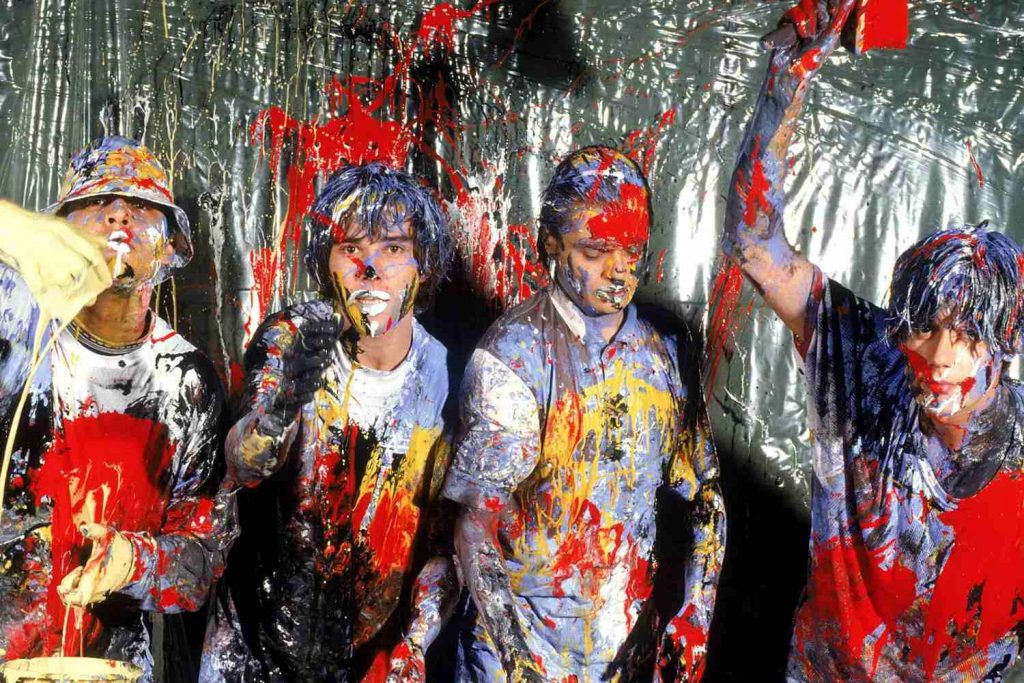Recounting some of the wackiest, pettiest, and bizarre music copyright lawsuits of our time!
Music history is no stranger to controversy and we’ve seen a smattering of incredible bands break up for extraordinary reasons, money and creative freedom often lie at the root of these reasons.
Lawsuits in music
We list some of these happenings with internal and external furores that have led to lawsuits.
Read up on all the latest features and columns here.
John Fogerty vs Fantasy Records
In 1988, John Fogerty found himself in a legal battle against his former band Creedence Clearwater Revival’s label Fantasy Records, which saw Fogerty being sued for sounding too much like himself. Yep. Fantasy President Saul Zaentz sued Fogerty for copyright infringement, claiming his solo track ‘The Old Man Down the Road’ sounded far too similar to Creedence’s ‘Run Through the Jungle.’
While both songs were written by Fogerty, Zaentz held the copyright to the Creedence hit and found his grounds to sue – bizarrely – for what technically amounted to self-plagiarism. Fortunately for Fogerty, Zaentz’s case ended when the jury ruled in Fogerty’s favour upon hearing him play both songs and their clear differences on the witness stand.
Metallica vs Napster
When Napster first arrived in 1999, the free peer-to-peer music sharing website gained enormous traction among US college students – and a lot of attention from musicians and governing bodies in response to the decidedly grey area of ethical issues surrounding Napster’s services, and this cemented its place in music history. The Recording Industry Association of America filed a lawsuit against Napster just four months after its launch, and other industry giants soon followed. Dr Dre filed a lawsuit, but it was Metallica’s voice in the matter that continues to be the focus of conversation to this day.
Metallica sued Napster, the University of Southern California, Yale University, and Indiana University for copyright infringement and racketeering in April, 2000 following news that the website not only offered the band’s catalogue for free, but had also leaked an incomplete version of their song “I Disappear”.
Backlash ensued when Metallica asked Napster to block 335 thousand fans who had downloaded their music illegally, and while the lawsuit was eventually settled in 2001, the whole affair contributed to the downfall of Napster, which liquidated its assets in 2002. Opinions still differ on whether Metallica did the right thing, but Kirk Hammett recently stated the band is “still in the right about Napster.”
Neil Young vs Geffen Records
Despite being known to often search for new creative outlets, Neil Young somehow surprised David Geffen, owner of Geffen Records, by not producing the kind of music Geffen had expected upon signing Young in the early ’80s. Young’s first two offerings at his new label were Trans, an attempt at electronic music, and Everybody’s Rockin’, a rockabilly collection (why not?)
Evidently, Geffen was displeased with the albums he claimed were “unrepresentative” of Young’s music. He filed a suit in 1983 alleging Young had violated his contract. Young responded with a countersuit claiming he was granted total artistic freedom through his contract with Geffen. The suit settled with an apology from Geffen, and Young went on to record two more albums for the label.
Roger Waters vs Pink Floyd
After years of bickering between Pink Floyd bandmates Roger Waters and David Gilmour, Waters formally left the band in December 1985. The issue? The rest of Pink Floyd carried on without him and continued their music history. Waters took legal action to bar his former bandmates from using the name Pink Floyd and from featuring their signature inflatable pig mascot during performances. Gilmour eventually won the case, and Waters even reunited with the rest of Pink Floyd for a set at Live Aid in 2005. When discussing the case with the BBC in 2013, Waters would admit, “I was wrong. Of course I was. Who cares?”
George Harrison vs Bright Tunes
“My Sweet Lord” remains one of the most well-known songs from George Harrison’s post-Beatles music history, but it seems destined never to quite shake its associated controversy. In another case of copyright infringement, Harrison was sued by Bright Tunes who claimed ‘My Sweet Lord’ sounded awfully like the Chiffons’ 1962 hit ‘He’s So Fine’, for which they held the copyright. It was a real setback for Harrison who, instead of celebrating becoming the first Beatle to have a solo number one on the Billboard charts, ended up in a lengthy legal battle. Although the suit was first filed in 1971, the case wouldn’t go to trial until 1976 and litigation continued all the way through until 1998.
Harrison ended up paying more than half a million dollars for “subconscious plagiarism”, a fine reduced thanks to former Beatles manager Allen Klein purchasing Bright Tunes and negotiating the sale of the song to Harrison (Klein also played a major role in the infamous lawsuit that broke up The Beatles – but more on that later). “The Quiet Beatle” later admitted to the similarities between the two songs in his autobiography I Me Mine.
Axl Rose vs Guitar Hero
To most people in the world, Guitar Hero is a game that brings bucketloads of joy and the happy delusion that you’re basically a guitar virtuoso. For Axl Rose, the game inspired him to file a lawsuit. Rose claimed that Activision, the company behind the popular game, had breached their contract as he’d only allowed the use of ‘Welcome to the Jungle’ in Guitar Hero III: Legends of Rock, as the company had agreed not to feature any songs by Velvet Revolver, a band consisting of a bunch of ex-Guns N’ Roses members. Turns out, the game not only featured several songs by Velvet Revolver, but also gave players the option to play as Slash – and even featured Rose’s ex-bandmate on the cover.
The original fraud suit filed by Rose was tossed out by a judge in 2012 as the Guns N’ Roses singer took three years to take action, missing the two-year statute of limitations. Eventually, the case did get assessed and was subsequently dismissed. Thankfully, Axl Rose and Slash have since reunited and are touring together for the first time since the ’90s. Happy days.
Apple Corps vs Apple Computer
In 1968, The Beatles founded a new company called Apple Corps, a corporation encompassing a record label, film and publishing arms alongside a short-lived boutique store in London. Less than a decade later, Steve Jobs arrived on the scene with his company called Apple Computers, and a lengthy legal saga was born.
The Beatles’ Apple sued Jobs’ Apple in 1978 for trademark infringement, a case that was settled in 1981 with the condition that Apple Computers stay out of the music business. Another settlement was reached in 1991, followed by another lawsuit in 2003 from Apple Corps when Apple Computers introduced the iTunes Store and the iPod. The Beatles’ Apple claimed their trademark had once again been infringed on, but the judge disagreed, throwing out the case in 2006.
Four years later, The Beatles’ catalogue appeared on iTunes and sold two million songs in their first week as part of the service. Win-win?
Paul McCartney vs The Beatles
It’s the heartbreaking end to a legendary band in music history, but the Beatles’ lawsuit that officially signalled their demise remains one of the most talked about cases in music history. Pitting Paul McCartney against his bandmates John Lennon, George Harrison, and Ringo Starr, the suit was filed by McCartney in 1970 to legally disband the group, and to charge Beatles manager Allen Klein with mismanagement of the band’s funds.
The suit carried on until the group legally disbanded in 1975. McCartney’s concerns about Klein were later proven to be true when it was found their manager had been taking more than his share of royalties. He was subsequently fired, but the whole mess had taken a toll on the Beatles’ relationships with each other. They’d later reconnect in later years and find themselves in court again a few more times.
Pearl Jam vs Ticketmaster
1994 was another great year for Pearl Jam. Fresh from the success of their two most recent albums Ten and Vs., the band was brimming with confidence and decided to take a stand against Ticketmaster on behalf of music fans everywhere. They filed an antitrust complaint against the company for seemingly creating a monopoly on the ticketing industry by charging excessive fees and signing exclusive deals with major venues.
Pearl Jam wanted to charge just $18.50 for tickets to their shows with only a $1.80 service fee; Ticketmaster wanted at least $2 from each transaction. The band even aborted a summer tour to avoid dealing with Ticketmaster but sadly, they lost the case. They did, however, still manage to take home some kind of a win with the public relations nightmare they inflicted on Ticketmaster – not a bad consolation prize.
Vanilla Ice vs Queen and David Bowie
There’s a lot to be said about this case, but Vanilla Ice probably summed it up best in the below video where he explains the difference between his song “Ice Ice Baby” and the Queen/Bowie track “Under Pressure” extremely succinctly.
If you can somehow hear the resemblance between those two tracks, you’re not alone: representatives for Bowie and Queen threatened a copyright infringement suit, but the case was settled out of court for an undisclosed sum. Vanilla Ice insisted that adding a beat between notes created the difference between the two songs – and later admitted that his claim was a joke.
Ray Parker Jr. vs Huey Lewis and the News
You could also call this case Ghostbusters vs Back to the Future, as it turns out that’s what it all boils down to. Ghostbusters producers originally approached Huey Lewis to score the film’s theme, but as he was already tied up with Back to the Future, they turned to Ray Parker Jr. to make film and music history.
What resulted was a track that was clearly what the producers originally had in mind as it bore such a close resemblance to Huey Lewis and the News’ track ‘I Want A New Drug’ that Parker Jr. found himself faced with a lawsuit. The case was settled out of court, but Parker later sued Lewis for breaking the confidentiality clause of the original agreement when he spoke about the case on VH1’s Behind the Music in 2001.
Lewis told VH1 that, “the offensive part was not so much that Ray Parker Jr. had ripped this song off, it was kind of symbolic of an industry that wants something — they wanted our wave, and they wanted to buy it. It’s not for sale. In the end, I suppose they were right. I suppose it was for sale, because, basically, they bought it.”
Slipknot vs Burger King
A heavy metal band suing a fast food chain? You bet. Slipknot filed a suit against Burger King after seeing the restaurant’s new commercial advertising chicken fries with a masked metal band and noticing some distinct similarities between themselves and the promotional band. The heavy metal legends claimed Burger King had created a band that looked and sounded like them in order to influence the Slipknot generation to purchase chicken fries.
In an unexpected twist for Slipknot, Burger King fought back with a countersuit arguing that they were effectively doing exactly what Slipknot were doing – parodying a masked band. Both sides eventually dropped their suits and the ad continued its course across television screens. No word on whether the Slipknot generation actually did buy chicken fries.
Keen to keep reading? Find out more about plagiarism lawsuits specifically here.







